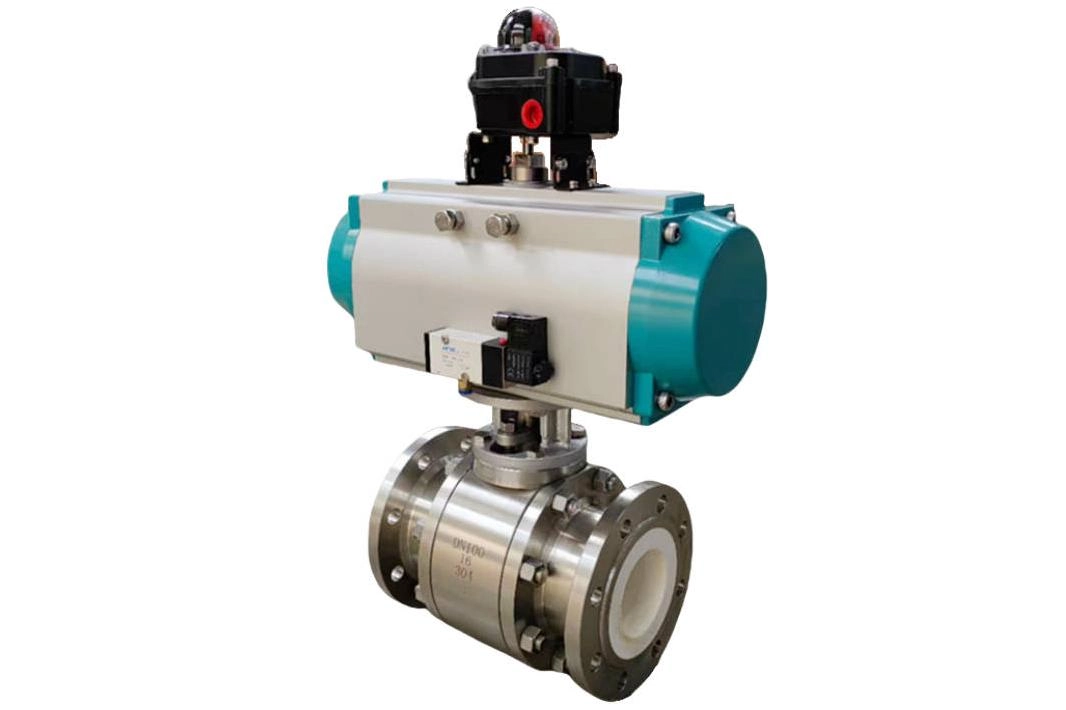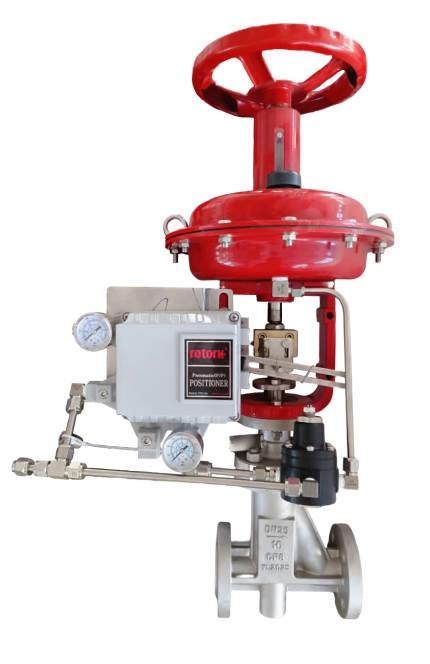Applications of Flow Control Valves in Industrial Processes

Overview of Flow Control Valves
Flow control valves are very essential in many industrial and mechanical setups. They manage the speed and path of liquid or gas moving through pipes. These valves are vital for keeping systems efficient, safe, and functional. They ensure precise control over flow details. By tweaking the valve opening, they adjust the speed and force of the liquid or air, meeting specific needs.
Types of Flow Control Valves
Flow control valves come in various forms, each suited for different tasks. They are generally divided into manual, automatic, and proportional/servo-controlled types.
Manual Flow Control Valves
Physical force makes manual valves move. Workers turn handwheels or move levers to control liquids or gases. These valves are frequently used in setups where adjustments are rare or environments stay consistent. Common types include needle valves and globe valves. They allow precise regulation of flow speed.
Automatic Flow Control Valves
Automatic valves function without human input. Instead they use sensors and actuators. This can adjust flow based on system needs. So there are two types: pressure compensated and non pressure compensated types.
Pressure Compensated Valves
Pressure compensated valves deliver stable flow independent of upstream or downstream pressure changes. They are best used in uniform operation under fluctuating pressures in applications. Hydraulic systems, for example, use them to offer smooth actuator speeds and avoid damage due to abrupt pressure changes.
Non Pressure Compensated Valves
Non pressure compensated valves don’t adjust for pressure changes. They suit systems with stable pressure. Though simpler than pressure compensated ones, they perform reliably in consistent conditions.
Proportional and Servo-Controlled Valves
Proportional and servo-controlled valves make use of advanced technology in flow control. Electronic circuits give precise adjustments based on sensor feedback. Proportional valves control flow based on an input signal. Servo-controlled valves can better control function with closed-loop feedback. They are applied in advanced industry like robots and aerospace.
Applications in Air Flow Control
Flow control valves can be used to regulate air. The precision can perform well in areas like pneumatic tools, compressed air setups, ventilation, and HVAC systems.
Use in Pneumatic Systems
Pneumatic systems use compressed air as their energy source. Flow control valves are essential part to optimizing these setups. They regulate airflow effectively.
Regulating Airflow in Pneumatic Tools
Pneumatic tools need steady airflow to make sure the mechanism work smoothly. Flow control valves ensure these tools get the just right amount of air under the correct pressure. This helps performance and prevents damage from excessive force.
Ensuring Efficiency in Compressed Air Systems
Compressed air systems often lose efficiency due to leaks or poor airflow control. Using the right flow control valves in the design cuts energy waste. It keeps output steady across the system.
Role in Ventilation and HVAC Systems
In ventilation and HVAC systems, proper airflow is critical for indoor air quality and temperature. Flow control valves adjust air volumes for different building zones. This improves comfort and saves energy by matching system output to real-time needs.
Applications in Liquid Flow Management
Implementation in Water Treatment Plants
Controlling Water Distribution and Filtration Processes
Water treatment plants depend on flow control valves for proper water distribution and filtration. These valves maintain steady flow rates, which affect processes like sedimentation, filtration, and disinfection. They ensure effective impurity removal and adequate supply to downstream systems. Automatic pressure-compensated valves handle pressure changes, ensuring smooth operation during high demand.
Role in Chemical Processing Industries
Managing Fluid Mixing and Reactions
In chemical processing, precise fluid flow control is vital for mixing and reactions. Flow control valves manage raw material entry into reactors or mixers. Accurate flow rates ensure desired reactions. Proportional and servo-controlled valves adjust in real time based on sensor data. This reduces waste, improves product quality, and enhances safety by preventing overflows or uncontrolled reactions.
Applications in Gas Flow Regulation
Use in Natural Gas Processing and Distribution
Ensuring Precise Gas Delivery for Combustion Systems
Natural gas plants need advanced flow control to deliver gas to combustion systems efficiently. Flow control valves supply gas at the right pressure and volume for stable combustion. Automatic pressure-compensated valves adapt to pipeline pressure changes without affecting performance. This ensures steady energy output and reduces risks from pressure surges or leaks.
Role in Industrial Gas Production
Industrial gas facilities need precise gas flow control during separation, purification, and liquefaction. Flow control valves fine-tune the supply of gases like oxygen, nitrogen, or hydrogen. Advanced servo-controlled valves allow highly accurate adjustments. These improve efficiency and cut energy use by optimizing gas flow.
Integration of Flow Control Valves with Automation Systems

Use of Sensors and Actuators for Enhanced Precision
Combining sensors and actuators with flow control valves has transformed fluid and air flow control. Sensors track pressure, temperature, and flow rate in real time. Actuators adjust valve positions based on this data. This closed-loop system ensures high precision under changing conditions. For example, automated proportional valves respond instantly to demand or environmental shifts, maintaining optimal performance without manual input.
Benefits of Smart Flow Control Solutions
Intelligent flow control systems combine smart valves products with Internet of Things platforms to provide better performance and efficiency. Operators monitor and control remotely the valves by way of dashboards or apps. Predictive maintenance using machine learning identifies potential problems before there is a breakdown, minimizing downtime and repair costs. Miwival’s smart valve solutions lead in innovation. They offer durable, precise solutions for seamless integration with automation systems. These meet diverse industrial needs and boost system reliability.
FAQ
Q: What are the primary applications of flow control valves in industrial processes?
A: Flow control valves are used to regulate the flow of liquids, gases, and air in industries such as water treatment, chemical processing, natural gas distribution, and HVAC systems. They ensure precise control of flow rates, pressure, and volume. For example, in water treatment plants, valves maintain flow rates at 500–2,000 gallons per minute (GPM) to optimize filtration processes.
Q: How do flow control valves improve efficiency in pneumatic systems?
A: In pneumatic systems, flow control valves regulate airflow to tools like drills and wrenches, ensuring consistent pressure (typically 90–120 PSI). This prevents energy waste and equipment wear. Studies show that proper valve use can reduce compressed air system energy losses by up to 20–30%.





